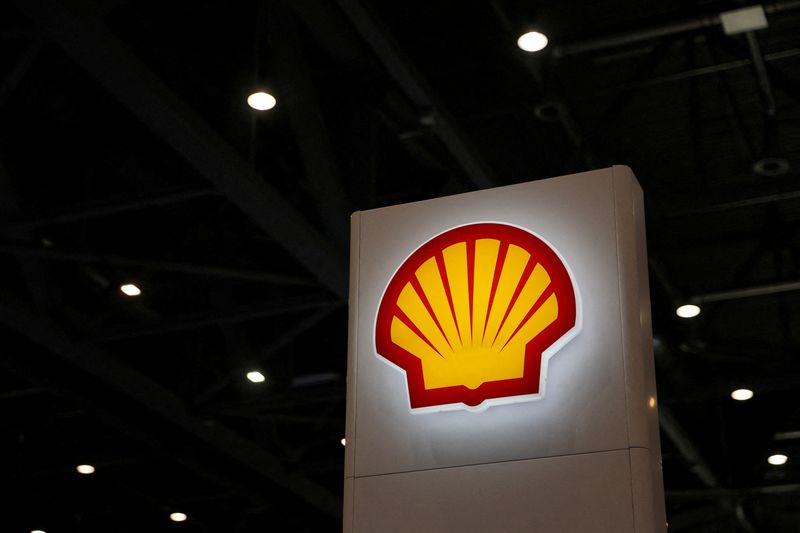By Ron Bousso and Arunima Kumar
LONDON (Reuters) -Shell trimmed its liquefied natural gas production outlook for the fourth quarter on Wednesday and said oil and gas trading results are expected to be significantly lower than in the previous three months.
In a trading update ahead of Jan. 30 full-year results, Shell (LON:RDSa) also said it would take $1.5 billion to $3 billion of non-cash, post-tax impairments, including up to $1.2 billion in its renewables division, linked to European and North American assets.
Shell last month said it was stepping back from new offshore wind investments and splitting its power division following an extensive review of the business, part of CEO Wael Sawan's drive to focus on the most profitable parts.
Shell shares were down 1.5% by 1125 GMT.
The world's top oil and gas companies have seen profits decline throughout 2024 following record earnings in the previous two years as energy prices steadied and global oil demand faltered.
U.S. oil giant Exxon Mobil (NYSE:XOM) on Tuesday signalled that sharply lower oil refining profits and weakness across all its businesses would reduce its fourth-quarter earnings by about $1.75 billion from the prior quarter.
Shell, the world's largest LNG trader, said trading results for the division in the fourth quarter would be significantly lower than in the previous three months due to the expiry of hedging contracts Shell took in 2022 to protect itself against a potential loss of Russian production following the invasion of Ukraine.
Trading in its chemicals and oil products division was also expected to be significantly lower quarter-on-quarter due to lower seasonal demand.
Shell does not provide earnings figures for its trading operations.

The British company trimmed its LNG production forecast for the quarter to 6.8-7.2 million metric tons, from a previous forecast of 6.9-7.5 million tons, citing lower feedgas deliveries into liquefaction facilities and fewer cargo deliveries.
"We see the release as negative, with weakness across a number of divisions and weaker trading across oil, gas and power," RBC (TSX:RY) Capital Markets analyst Biraj Borkhataria said in a note, adding that this was not expected to impact shareholder returns.